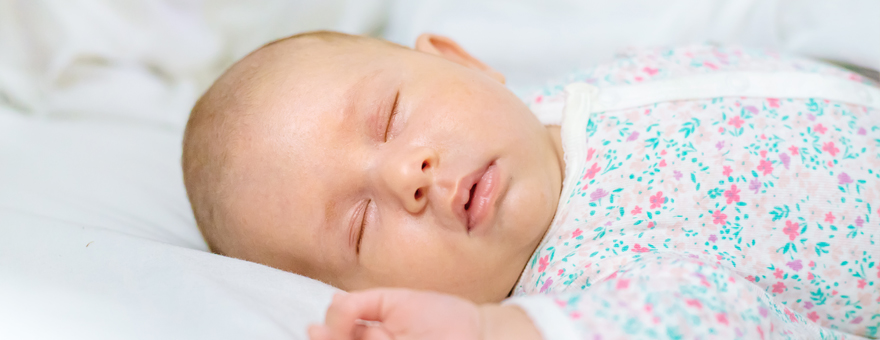
In the video below a student health visitor in the 0-25 Service Knowsley, shares some key messages about safer sleeping
Videos from the Lullaby Trust
Safe sleep for babies
Safer sleep for babies – Sleep position, sleep environment and bedding
Safer sleep for babies – Overheating, temperature and overwrapping
Safer sleep for babies – Baby ill-health, Baby Check app and vaccination
Safer sleep for babies – Breastfeeding
Safer sleep for babies – Smoking and e-cigarettes
Sleep for under ones
Sleep is essential for good health, growth and brain development. Problematic sleep is one of the most common discussions in relation to new babies and lack of sleep for parents can be really challenging, but what is ‘normal’ and when do you need to ask for help and support?
Firstly, anytime that you are feeling stressed and finding life hard there is help out there; whether your baby/child is sleeping normally or not, if this is how you feel it is best to contact the Health Visiting Team for support and information.
What is normal sleep for babies?
It is normal for babies to not sleep for long periods of time after they are born. Babies in pregnancy are often awake when their parents sleep as they are rocked to sleep when their parents are walking about in the day. So a newborn baby is often a little ‘back to front’ and it takes time for them to start to sleep when it is dark.
Babies tend to have the same sleep patterns day and night in the first 2-6 weeks with sleep in blocks of 2-4 hours. Between 6-12 weeks they may start to sleep a little longer at night and have longer times awake in the day. By 6 months babies are able to sleep up to 6 hours, just not every night and this is considered to be ‘sleeping through’.
All babies should continue to wake for a feed during the night until at least 8 months of age.
Night waking is important as it helps reduce the risk of sudden infant death syndrome (SIDS) and sharing a room with baby helps baby wake during the night. It also helps when breastfeeding as the milk supply is developed by feeds placed between midnight and 4.00am.
It is normal for babies to be fed to sleep especially in the first 6 months, babies feel calmed and comforted by feeding and it helps them settle. This is not a problem and they will change this once they develop and are able to self soothe.
Sleep routines such as controlled crying and gradual withdrawal have had trends in the UK in recent years but they do not have a place in responsively caring for a baby. Babies should not be left to cry themselves to sleep. Crying is a baby’s way of saying ‘I’m lonely’, ‘I’m frightened’, ‘I need you’ and soothing them and calming them and helping them to resettle will encourage good sleep, when they are developmentally ready.
Good sleep hygiene (getting the environment right) is always of benefit and babies will feel comforted by routine; this can be nothing more than being put down in the same space to sleep, making sure the room is dark and quiet and doing night feeds in a quiet way rather than singing and playing! Having a bedtime is useful once baby starts to sleep for longer periods and doing all feeds after that as night feeds will encourage baby to go back to sleep calmly.
All babies should be in the room with you both day and night, babies under 6 months should not be left on their own to sleep.
Feeding a baby day and night can be very tiring and fear of falling asleep is common for most parents. Ideally you should have a chair in the room that you use for feeding at night.
Resources, support and useful links
- Safer sleep 0-3 months
- Safer sleep 3-6 months
- Safer sleep 6-12 months
- Safer sleep 1-2 years
- Safer sleep 2-3 years
- Safer sleep 3.5 years
- Every Mind Matters
- Sleep Foundation
- NHS
- Sleep Association
If you are breastfeeding and choose to bring baby into bed to feed them, please follow the safe sleep guidance below: